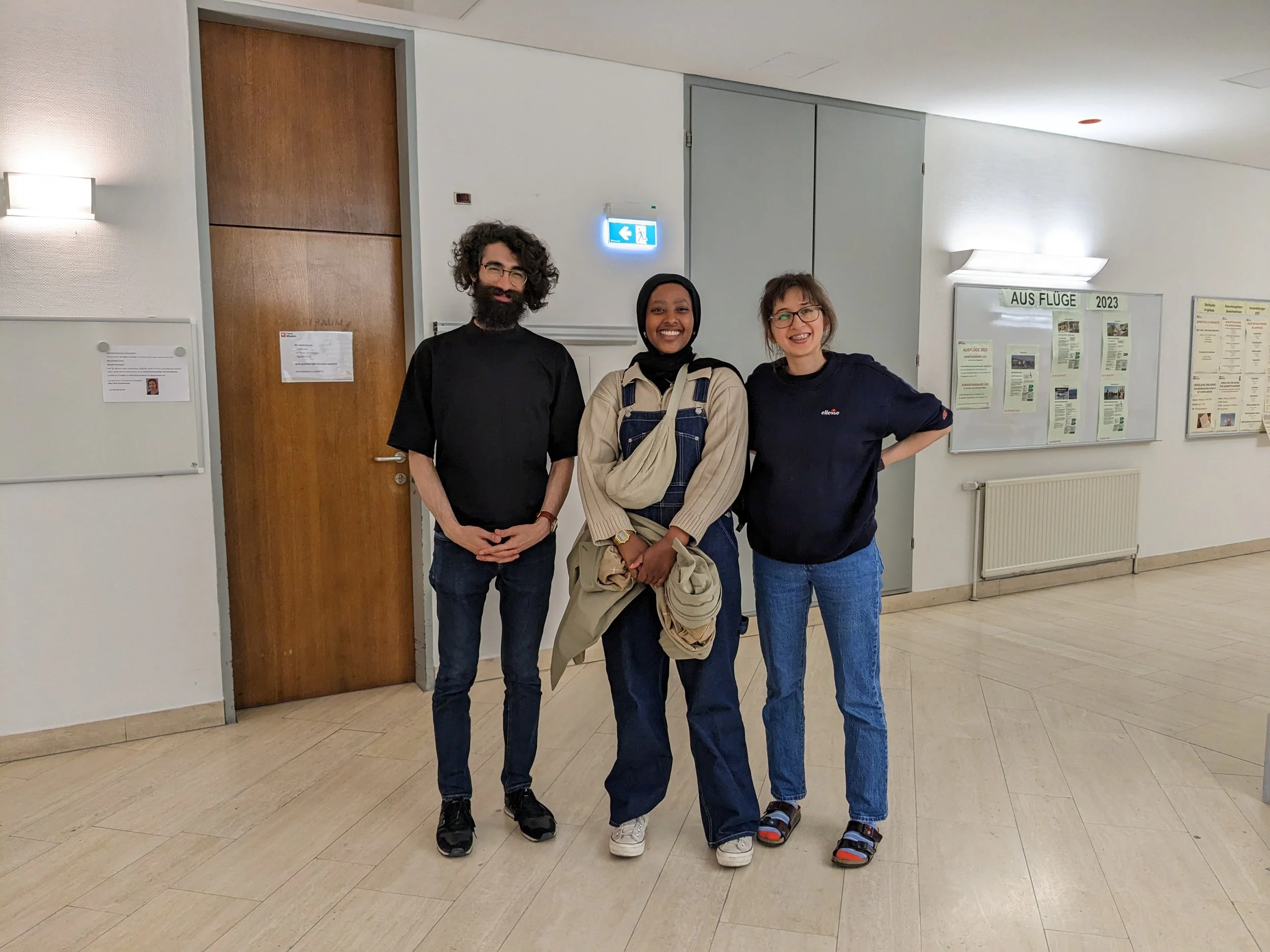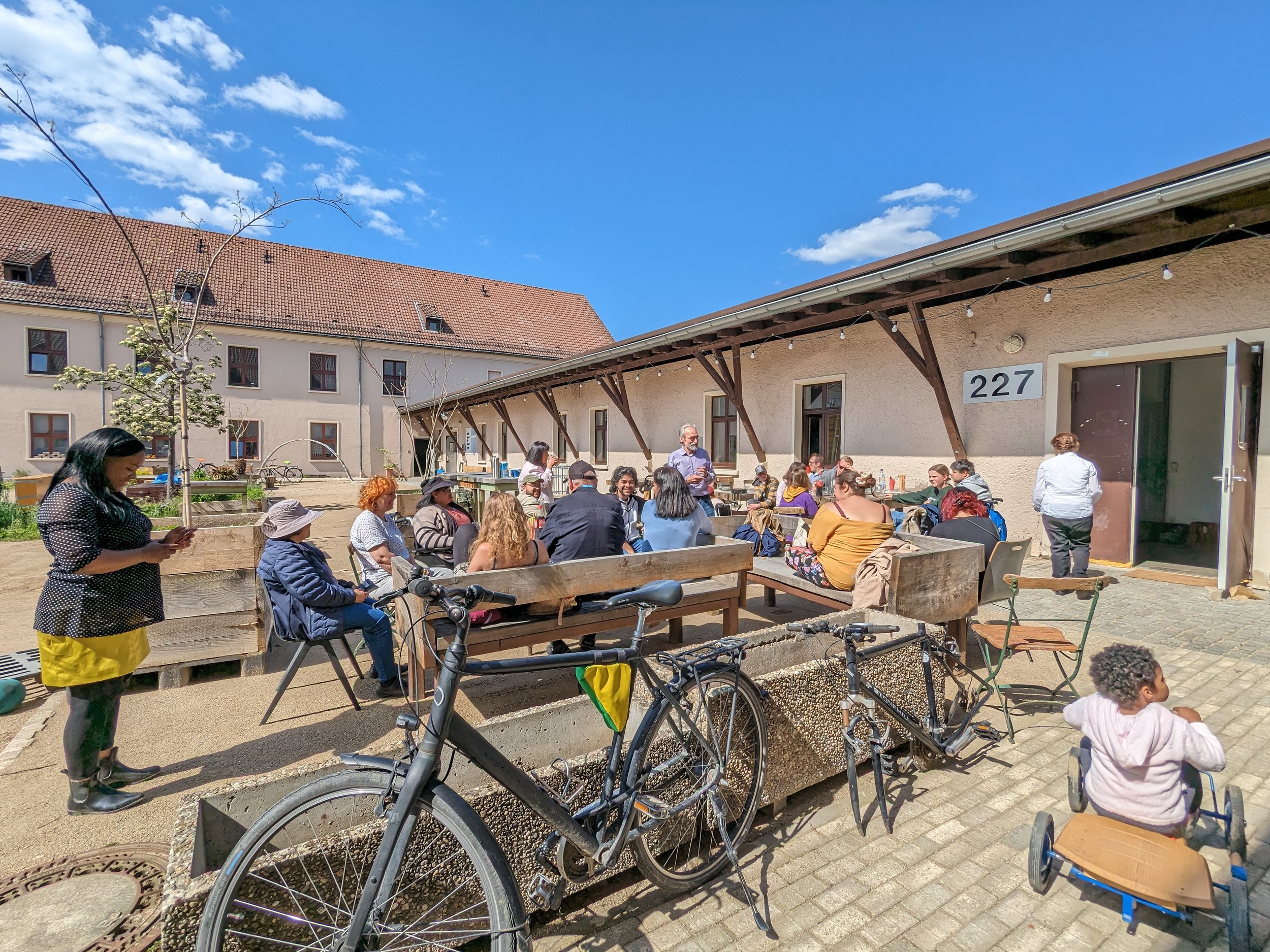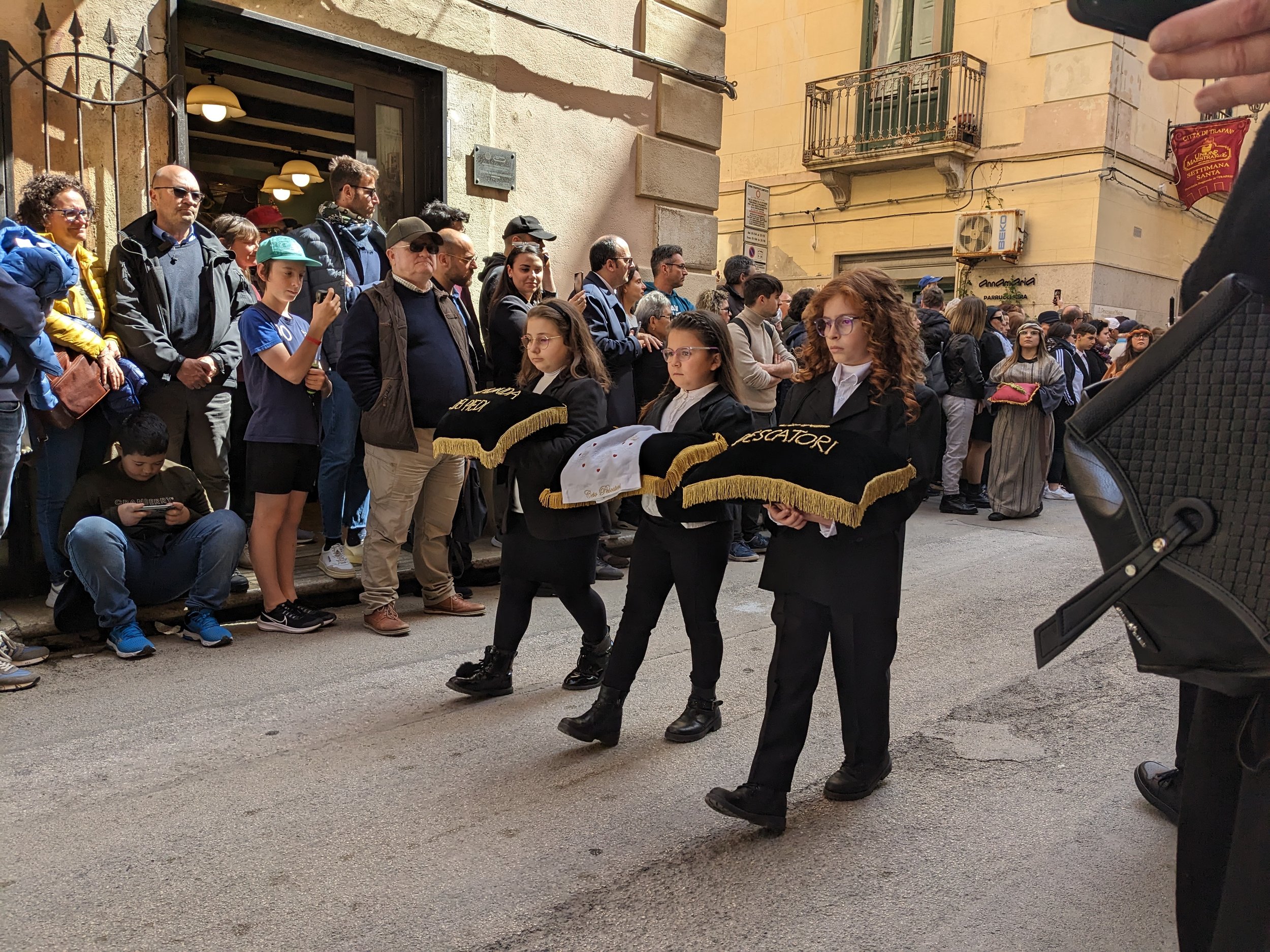
European reflections
Field notes from the 8 weeks I spent
exploring intergenerational connections across Europe
1.
13% of Europeans report feeling lonely most or all of the time over the past four weeks, while 35% report being lonely at least some of the time.
This crisis of connection stretches across generations. It has swept across Europe since the late 20th century - as our family, community and professional landscapes have shifted — and was turbocharged by Covid lockdowns. Each country, culture and community has its own flavour of this crisis — but many millions of people are all sailing in the same, tormenting sea of loneliness, crushed by intergenerational disconnection.
Photo: A photograph of an Italian ‘nonna’ fills a doorway where once a real person would have stood in the rural town of Erice in western Sicily where tourism has hollowed out the town
2.
A wave of true connection is bubbling up outside of established structures, strictures and regulations. New social infrastructure — places and spaces for gathering — is popping up. These spaces are meeting our deep, instinctive desire for spaces to make sense of what is changing. These spaces are building the solidarity and resilience needed to respond to this time of ‘polycrisis’. These are spaces with open doors and open hearts for people from all walks of life. The magic ingredients? Authentic leadership, radical inclusivity and a proliferation of often very simple rituals of connection and community.
Photo: Four residents of Mussomeli ranging from 14 to 59 years prepare The Good Kitchen’s weekly Sunday community meal. “Tutti benvenuti” (everyone welcome) defines the spirit of this weekly ritual for any and all who don’t have a family table to gather round.
3.
New (or perhaps more accurately: old!) ways of living together are being experimented with by growing numbers of people of all ages. From care homes to spare rooms, old and young are being drawn together by an awareness of the tsunami of demographic change coming down the line, our deeply isolating experiences of Covid lockdowns, the economic crisis which is necessitating cost-saving solutions and the compounding long-term social crises of loneliness and mental health.
Photo: Imad (left) and Charlotte (right) in the care home they’ve called home since 2019 in Vienna, Austria.
4.
Loneliness affects millions. Across Europe everyone has their own story of how our deep disconnections are overwhelming our health and social care systems, disrupting our productivity and having profound effects on our lives, communities and societies. And yet each of our experiences of loneliness tells us that our loneliness is healed not by what feels like an ‘intervention’ aimed at millions, but by a set of deeply human, personalised connections. For those of us preoccupied with easing this crisis, we are all grappling with the need to unleash connections for millions, but the reality is that this will only work at a human scale.
Photo: Ingo Franz of Hausgemeinschaft hosts a community event to launch a new community living premises in Mannheim, Germany. This is part of a new edge-of-town development that will see people with many different care and support needs live alongside one another supported by a dedicated community organiser with the aim of everyone being ‘good neighbours’.
5.
Leadership that bridges divides is bubbling up in new ways. For some, lived experience is the source of inspiration and motivation, for others it is an outsider perspective that offers the insights and impetus to try something new or to build something needed. People are looking out at each other, looking back in history, and looking inwards to their own needs, for the answers to our loneliness and disconnection crises.
Photo: Danny, Founder of The Good Kitchen in Mussomeli in Sicily, in front of the community kitchen at the end of another delicious community meal.
6.
There’s transformational, inspiring, beautiful intergenerational work happening all over Europe. Some of it calls itself intergenerational work, some of the generational connection is a by-product of other goals. But it is hard to imagine a lot of what inspired me most being pulled off in charity settings in the UK. Securing charity funding so often requires the identification of a volunteer and beneficiary group and therefore immediately creates hierarchy and disparity between two groups who could and should be being supported to meet and connect as equals. The UK’s culture around risk management and the funding, and regulatory context constrains the connective power of work done in a charity context too.
Photo: Another busy morning in the Vollpension Cafe in Vienna, Austria — a social business where the workforce stretches from 20 years to 70 years. A group of 20-something social entrepreneurs, and friends, set out 10 years ago with a simple question: can we grow some new social spaces with less of the stuffiness of their traditional austere cafe culture, and more of the sort of cake ‘our grandmothers used to make’?
7.
Some old ways of connecting are dying, some new ones are emerging. It’s on all of us - as citizens, change-makers, activists and funders - to ensure we are doing all we can to both take forward what we want to retain and leave behind the ways of connecting that no longer serve us.
Photo: The Misteri Festival on Good Friday in Trapani, Western Sicily. This annual gathering marks the peak of the Catholic calendar and has been running uninterrupted for centuries. Hundreds of thousands of Sicilians line the streets to watch effigies portraying the death of Jesus. Both the crowd and the procession itself involves the youngest to the oldest in society.






